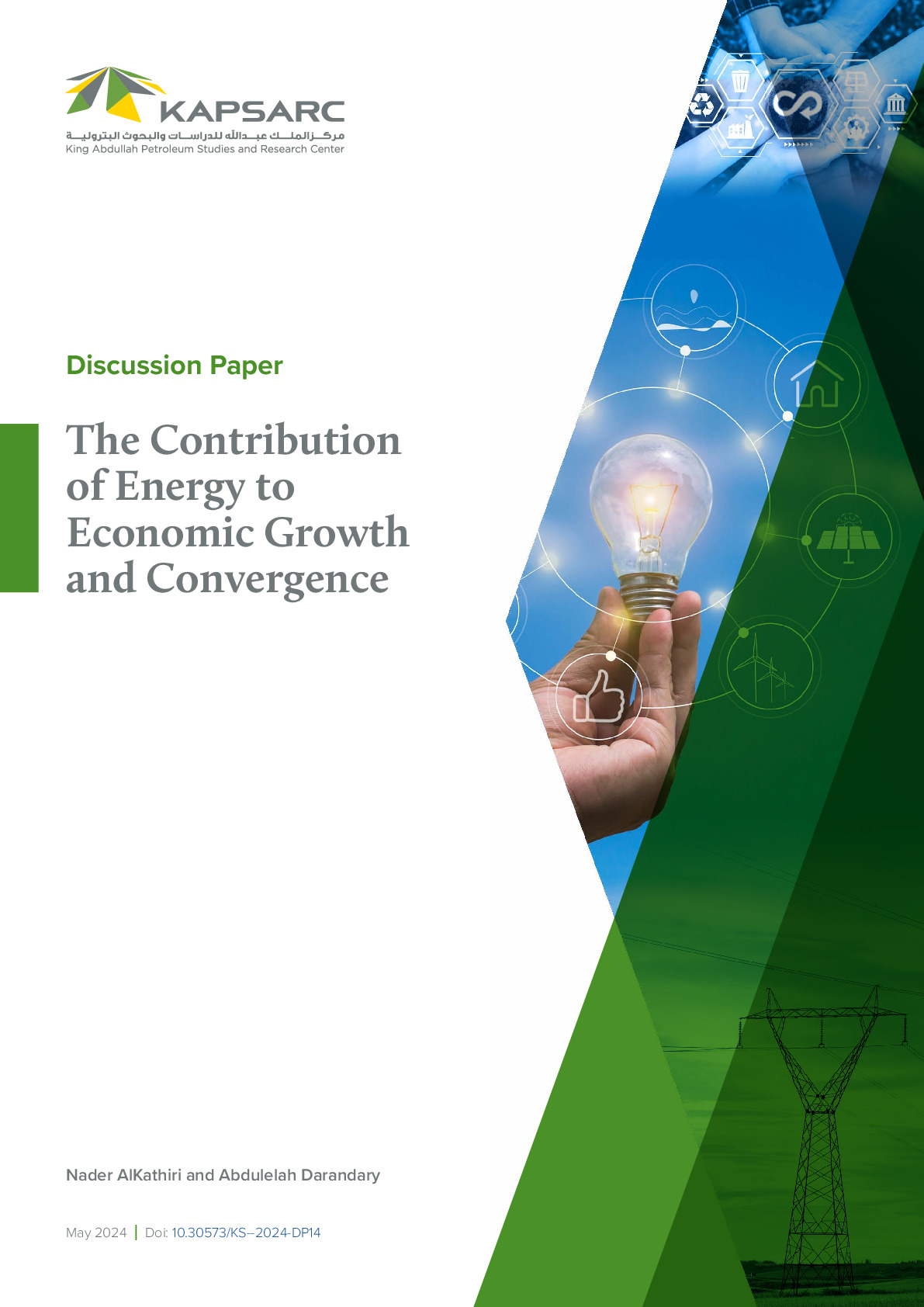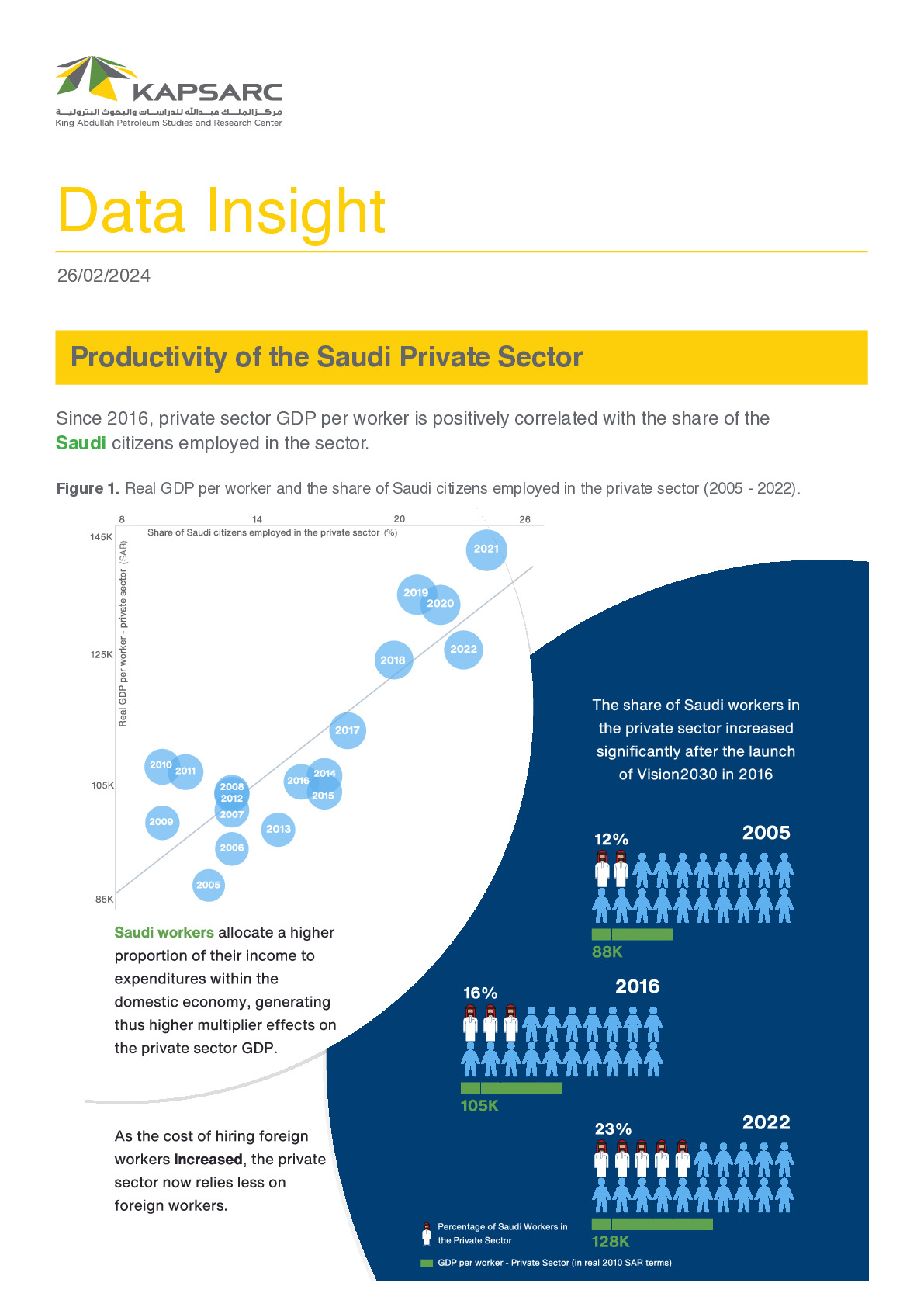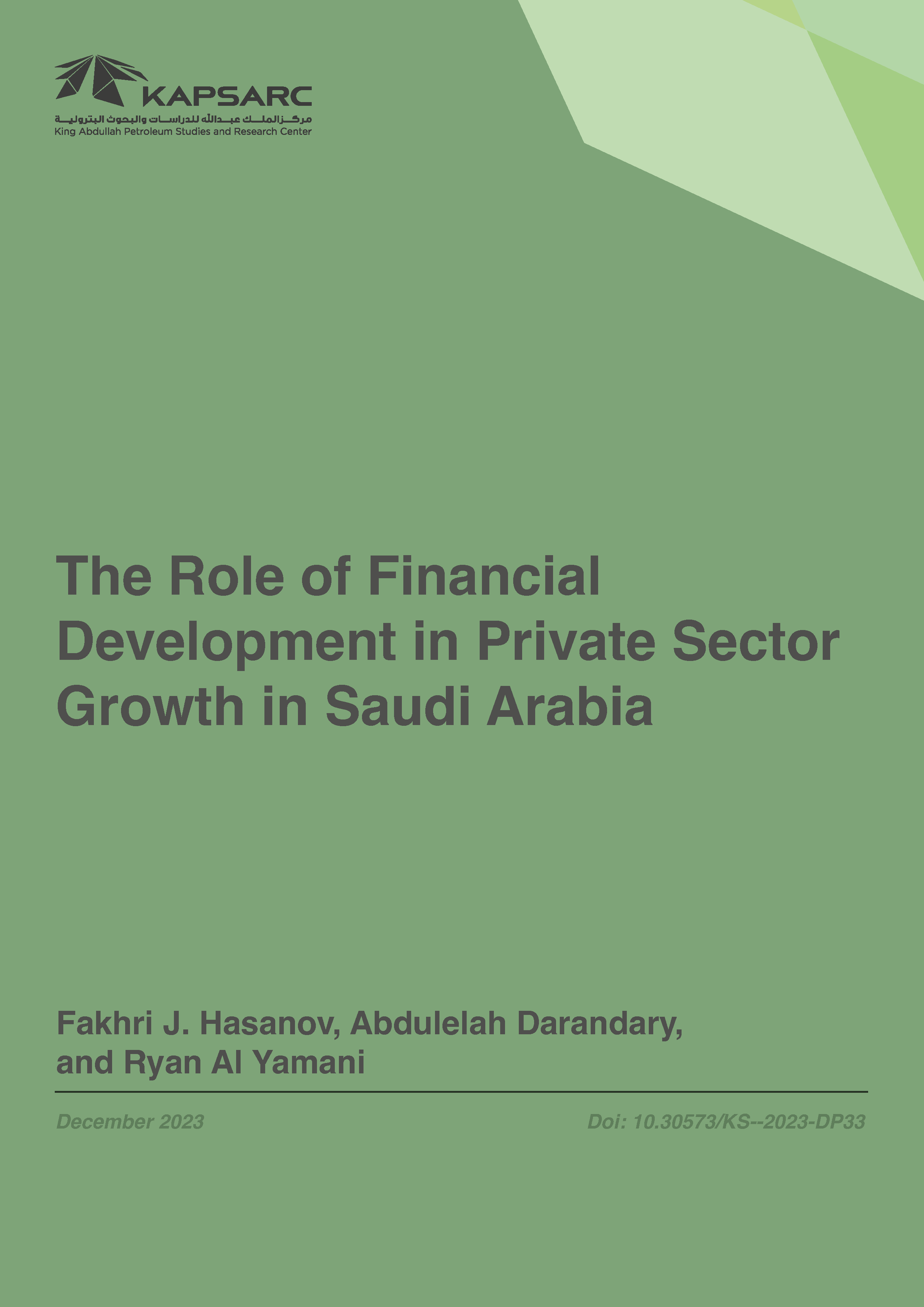Saudi Vision 2030 (SV2030), the strategic roadmap for the future of the Kingdom of Saudi Arabia, aims to decouple the country’s economy from its reliance on oil revenues through implementing several economic and social initiatives. The key economic goals of SV2030 announced in 2016 include increasing the private sector’s contribution to gross domestic product (GDP) from 40% to 65%, raising the share of non-oil exports in non-oil GDP from 16% to 50%, and reducing the unemployment rate from 11.6% to 7% by 2030. It also aims to maximize local content by localizing more than US$70 billion of content, make economic agents more efficient and increase government revenues by removing domestic energy subsidies and introducing other non-oil revenue items, enabling further government investment. Developing the Kingdom’s non-oil sector would help it to meet these targets. Fiscal policy could also play a major role, given that Saudi monetary policy originated from the fixed exchange rate regime (pegging the Saudi riyal [SAR] to the US$).

Senior Fellow I
Fakhri Hasanov is a senior fellow and leads the KAPSARC Global Energy Macroeconometric Model projects with 20+ years of experience…
Fakhri Hasanov is a senior fellow and leads the KAPSARC Global Energy Macroeconometric Model projects with 20+ years of experience in econometric modeling and forecasting. Since 2015, he has been involved in multistakeholder projects, leading and executing macroeconomic analysis of various policy choices and initiatives (e.g., energy prices, energy demand, and fiscal reforms) for the Kingdom’s economy. He has extensive experience working with policymakers. Prior to KAPSARC, he was a post-doc at George Washington University. His research mainly covers macro-econometric modeling for energy and environmental economics policy analyses. Dr. Hasanov has authored 50+ applied studies published in reputable journals such as Energy Policy, Energy Economics, Empirical Economics, and Energy Strategy Review. His research is recognized internationally (e.g., he is listed among the top 2% of scientists globally by Elsevier). Fakhri is an editorial board member of various peer-reviewed journals, such as Frontiers in Environmental Science. He holds a Ph.D. in econometrics.
Expertise
- Econometric modeling and forecasting
- Time series and panel data econometrics
- Macroeconometric models for policy analyses
- Energy economics
- Environmental economics.
Publications See all Fakhri Hasanov’s publications
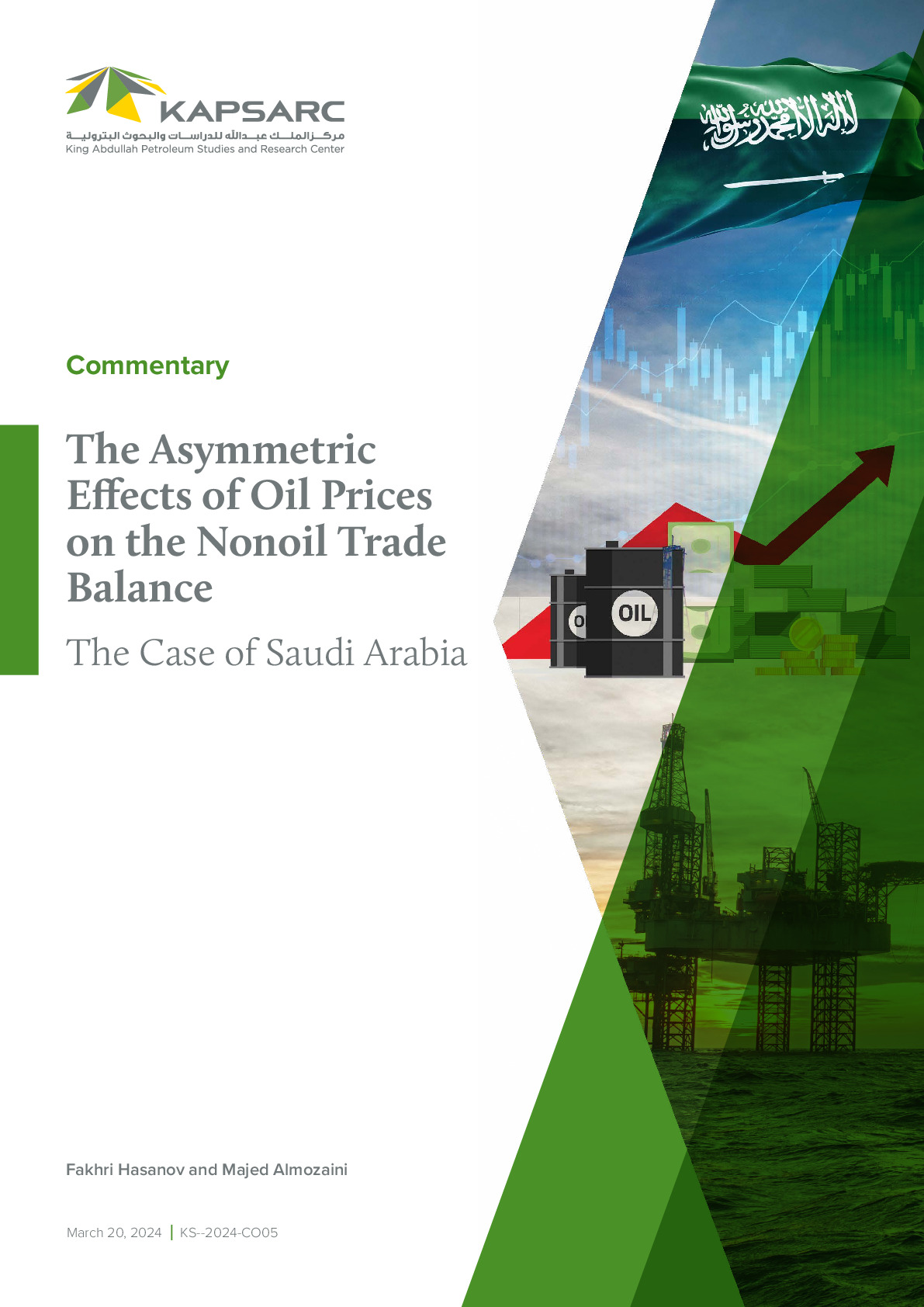
The Asymmetric Effects of Oil Prices on the Nonoil Trade Balance: The Case of Saudi Arabia
Saudi Vision 2030 (SV2030), the strategic roadmap for the future of the Kingdom of Saudi…
21st March 2024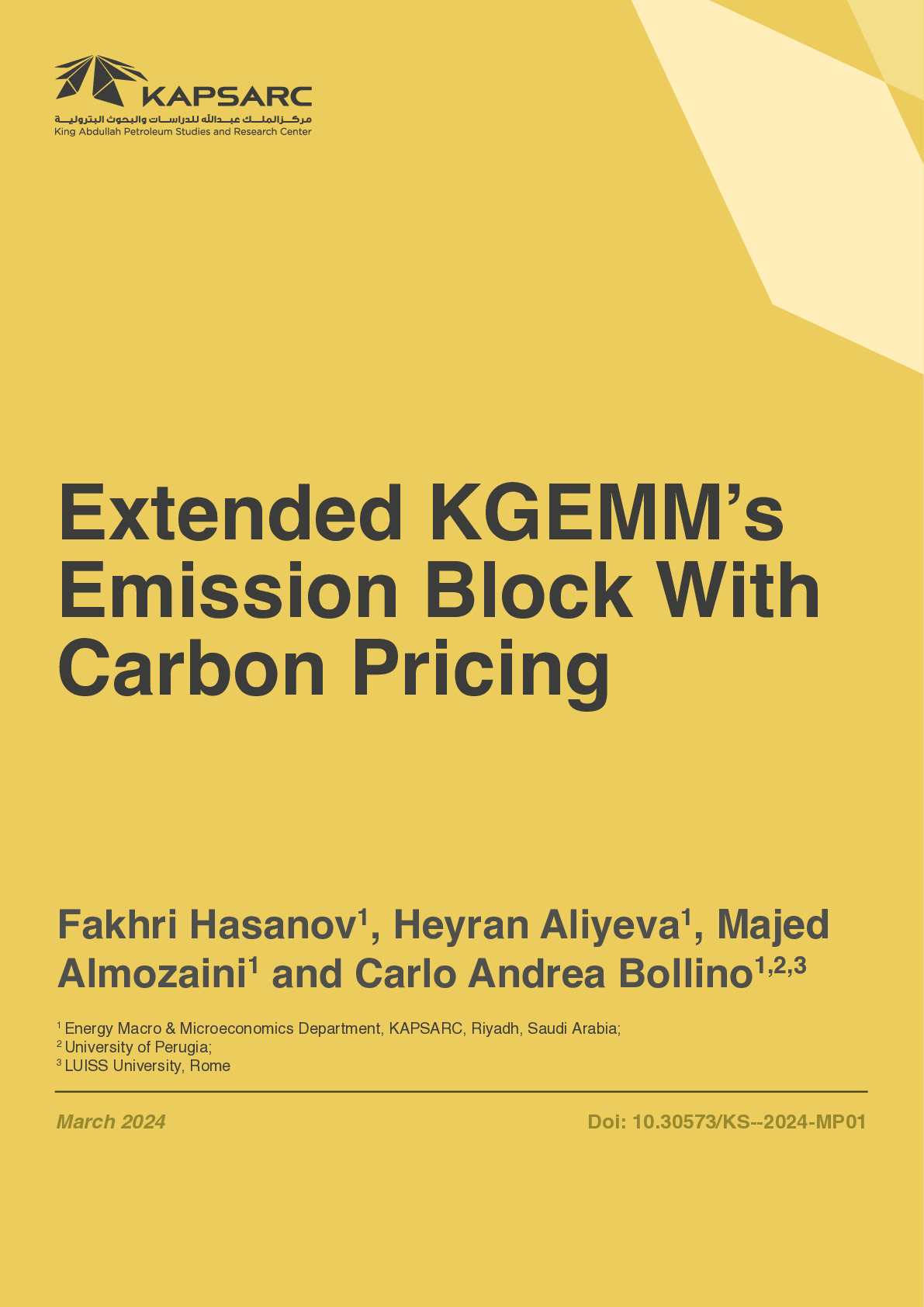
Extended KGEMM’s Emission Block With Carbon Pricing
Saudi Vision 2030 (SV2030), the strategic roadmap for the future of the Kingdom of Saudi…
12th March 2024

